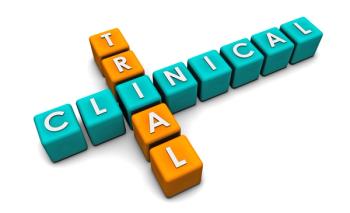
Changing Healthcare Practices are Hard, Changing Culture Harder
It seems that all the changes in the healthcare system over recent decades have been top down, and without a lot of input from the folks at the delivery end.
In a recent editorial published in our local newspaper, a prominent cardiologist took CMS to task for changes to the way in which he has practiced medicine for many years. His concern and criticism focused on surgical dress for procedures, documentation for medication orders, etc., issues that he felt didn’t need to be changed to ensure quality care.
In a subsequently published rebuttal editorial, a nurse took him task for his assumptions, from an infection control as well as a medical errors standpoint.
This exchange is just a microcosm of what has been going throughout our community and across the nation as the way in which we deliver medicine in our hospitals and outpatient departments dramatically changes. The talk around the hospital over the past six months has definitely centered on CMS and the CMS survey (or audit) that my hospital just successfully completed. We had a number of issues within our facility that fell outside the CMS standards (e.g., surgical garb, dietary, medical records, medical orders, etc.), which necessitated a top-to-bottom look at our entire infrastructure and care delivery systems.
The hammer of the CMS survey, and corrections of the previous deficiencies, has improved the delivery and quality of patient care at our facility, in my opinion. The hardest part has been changing of culture within the hospital for the medical and nursing staff.
It has been a grueling three years as our facility attempted to adapt to the new reality of supervision and regulation under CMS, and it has been tremendously expensive and disruptive to the culture within the hospital. Conversations within the doctor’s lounge have been dominated by frustration over the changes that are being “forced” on the medical staff and every department within the hospital.
I have always said that people don’t resist change; they resist being changed.
I can’t speak for other folks, but I know that as I get older and more experienced, I’m less likely to be comfortable with change and adaptable to the inevitable changes of the healthcare system. I think the same can be said for my physician colleagues, all of whom have decades invested in the medical training.
The healthcare system of today is not the healthcare system that physicians and other practitioners knew and understood when they were making critical career decisions and commitments that can reasonably be expected to be set in stone for the rest of their careers and lives.
On the other hand, we learn in medicine that the only constant is change, and we have to adapt to stay abreast of the whirlwind changes in technology, treatment, and medical knowledge that come hand-in-hand with modern medicine. So there is a model in medicine for adaptation, but I don’t think that we all make the logical leap to apply this to other areas of our professional lives.
I’m all for change that makes the care that I give more effective, safer, and perceived to have a higher level of patient satisfaction. Effective and sustainable change in the healthcare system has to be a partnership between policy makers, payers, and the folks that deliver the care day in and day out. What frustrates me as well as my physician colleagues is it seems that all the changes in the healthcare system over recent decades have been top down, and without a lot of input from the folks at the delivery end.
I’m very grateful that our facility has come through our latest CMS survey with flying colors, and I believe that the permanent changes that we made to our medical staff, nursing staff, and administrative staff procedures and functions will ensure sustainability to our good quality measures.
Like I always tell my physician practice partners, we have to comply at the local level because failure is not an option if we want a place to work, but we also have an ethical duty to participate in the change process at the global and national levels to make sure that our voices are heard in this debate. These are two distinctly different, but equally vital activities that are our duties as citizens. We have a unique perspective and experience that is vital to effective, meaningful change.
Find out more about Stephen Hanson and our other
This blog was provided in partnership with the
Newsletter
Receive trusted psychiatric news, expert analysis, and clinical insights — subscribe today to support your practice and your patients.







